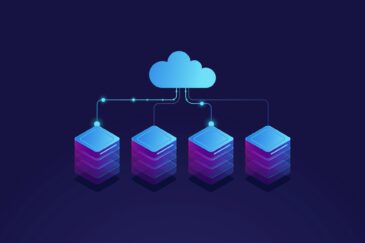All You Need to Know About Cloud Managed IT Services

- June 10, 2022
- Jhansi Rani
- 0
Businesses can opt for MSPs for public, private, or hybrid clouds anytime during the cloud adoption lifecycle. Organizations typically avail of MSP services before cloud migration to ensure a smooth journey and reduce migration costs.
What is a Cloud MSP?
Cloud Managed IT Services Providers can be associated with your cloud technology provider or could be a third-party service provider. Cloud MSPs typically offer subscription-based pricing for various services and can replace or supplement your in-house IT teams.
Pros of Cloud MSPs
The benefits of Cloud MSPs vary based on the cloud provider and your cloud configuration. However, the most common advantages include:
Resource Optimization
Cloud Integration
Integration support is a critical benefit of Cloud MSPs, especially if working in a multi-cloud or hybrid environment. Multi-clouds combine cloud services from multiple cloud technology providers, and hybrid clouds combine on-premises and cloud resources. These environments typically require more complex configurations than single-cloud or cloud-only deployments. Cloud MSPs ensure that your new cloud resources are seamlessly integrated with your current systems. They also provide seamless data access for your employees, users, and and Cloud Managed Applications
Predictable Pricing
Several Cloud MSPs use a tiered, subscription-based support model to meet a wide range of constantly evolving customer requirements. This support model offers greater flexibility for your budget, ensuring that your monthly costs are steady and predictable. Additionally, some MSPs offer a credit system that allows you to access more support during periods of high usage in exchange for lower support levels during slow periods. This is perfect for organizations with seasonal schedules and demand fluctuations.
Cons of Cloud MSPs
Despite having several benefits, there are a few downsides to working with a Cloud MSP. Some of them include:
Predictable Pricing
Although the pricing is predictable, hiring a Cloud MSP can increase your overall spending. MSP service fees can be substantial based on the level of services you opt for and the complexity of your systems. Lower expenditure on in-house teams and optimized cloud resource costs offset these costs. However, you can exceed your budget if you haven’t performed detailed calculations without considering all the factors involved.
Reduced Performance Due to Resource Optimization
Optimizing cloud resources could often mean using lower-performance options. This is acceptable for many applications, but it can create issues for a few others. If Cloud MSPs do not prioritize assets after thorough evaluation, you can experience lower performance – your data can be slower to access, or your processes can take longer than expected. Therefore, discussing with your MSP the impact of any optimizations they recommend is essential. Always verify that the results meet your requirements and make changes if necessary.
Security and Privacy Risks
Cloud MSPs use a multi-tenant model, meaning that they are responsible for several customers and that all customer data is usually stored in a single location. If the MSPs have robust security measures, this shouldn’t be a cause for concern. However, your system could be affected by another customer’s data if they don’t have adequate security. You must thoroughly review the security measures offered by your MSP and take steps to ensure that your data is safe and secure.

Services
Products
Company
Copyright © 2024 Rite Software Solutions & Services LLP. All rights reserved.



